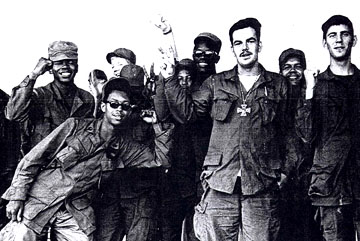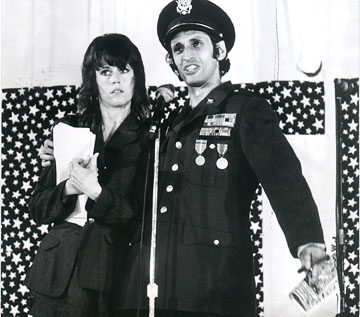Sir! No Sir!


The War in Iraq is now over three years old. At home in America, portions of the general populace are increasingly frustrated with the issue, and want the government to exit Iraq and bring the troops home. This draws many parallels to the Vietnam War, something with director David Zieger uses to his advantage in the absorbing Sir! No Sir! Although Zieger never mentions the current war, a few of his interview subjects do. Sir! No Sir! offers a fascinating look at what may happen within the armed forces if the War in Iraq continues. The documentary traces the rise of the anti-war movement within the armed forces, primarily as a result of United States involvement in Vietnam.
The most incredible aspect of this was that the movements were spontaneous, and not the result of an organized uprising. These were soldiers who took a look at the situation they were in, and decided it was wrong, or immoral. As a result, soldiers were thrown in jail, sometimes threatened with the death penalty. As the war dragged on, the movement grew. Some soldiers opened coffee shops where they could meet off base. Others published underground newspapers. Soldiers refused to go into battle for a war they felt was unjust.
Demonstrations were large, and often made the evening news. Which brings up an interesting point. Zieger documents how soldiers became politically active and did their best to change the world. Yet, when most people think of returning veterans, they think of soldiers ostracized and alienated. While this may be the case some of the time, it doesn't explain why or how the public has forgotten about these activities. The most fascinating sections of Sir! No Sir! occur when Zieger interviews veterans and has them expose some of the truths behind many of the stories assumed true. In particular, he disproves the story of hippie girls spitting on returning soldiers in San Francisco.
For the most part, Zieger simply lets his subjects speak. The veterans are passionate about their beliefs, and articulate in presenting them and the history of the anti-war movement. Ziegler casts a wide net, interviewing veterans from across the country from different branches of the military. The army, navy, and Green berets figure prominently as subjects. He also interviews Jane Fonda, an ardent anti-war activist. Today, vocal veterans groups denounce her for her involvement in the cause, but Zieger shows just how popular she was (very). The one topic that Zieger does not touch upon is the draft, which many explain why there is no similar, widespread movement today. There is no draft today; the United States has a volunteer military. During the time of Sir! No Sir! there were many people in the military who did not necessarily want to be there.